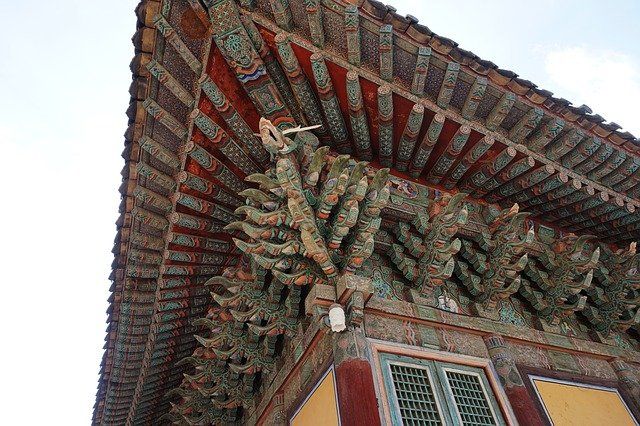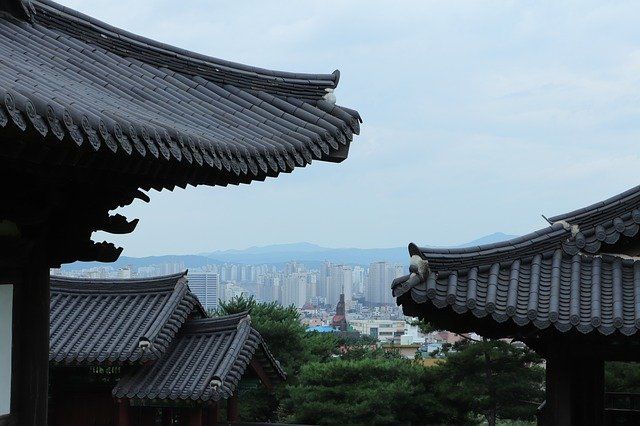The church in South Korea today
The church in South Korea today presents a very mixed picture. Her past history of faithful pioneering by American Presbyterian missionaries; her former, intense sufferings for the faith; and her present, large early-morning prayer meetings: are all well known. The church’s piety, with nights of prayer, fasting and missionary zeal are well attested. Yet, nonetheless, closer enquiry reveals a disturbing picture, with conflicting factors at work in contemporary Korean Christianity. Her past glories and present difficulties are mirrored, over a longer time-scale, in the history of the church in Great Britain, and it is arguably the latter that now knows greater barrenness.
Traditional religions
About three-quarters of Korea’s Protestants, or one fifth of the nation, would profess to be evangelical. This amounts to some nine million people out of a total population of forty-five million. While Presbyterian churches in Korea are still mindful of their Reformed history and creeds, the original impetus for faithful gospel preaching, which continued during the fires of revival and persecution, has now waned. Christians are more than ever vulnerable to the pervasive influences of Korea’s traditional religions — Shamanism, Confucianism and Buddhism.

Shamanism teaches the existence of one high god. Some say this religious background has made it easier for Koreans to accept Christianity, as another monotheistic faith. However, the reality is that Koreans can smuggle Shamanist concepts into their Christianity. At worst, ‘God’ is seen as a remote figure who cannot be dealt with directly, but who must be approached through a Shaman-like person (the pastor); he must be appeased by gifts (tithes and offerings) and sacrifices (early-morning prayer meetings), in order to release his blessings.
In addition, a ‘Confucian’ teaching ethos affects many churches. This means that these people are not taught by pastors to apply scriptural principles to life; rather they are taught a system of rules. This same mind-set puts the pastor into an unassailable position of authority, in which the congregation accepts his word without question.
Then, in some Christian circles, an individualistic approach, inherited from Buddhism, means people can go to church, say their prayers, give their gifts and go home again, without talking to anyone else. Yet, it should also be noted that other churches do have home-group Christian meetings, or well-attended fellowship meals on their church premises.
Many professing Christians in Korea view ‘revival’ as being synonymous with growth in numbers, rather than a powerful work of the Holy Spirit through the preaching of the pure gospel of Jesus Christ. Although most theological seminaries profess to be evangelical, many teachers in them do not expound the Bible in a systematic, expository fashion. It is reported that there are church leaders who do not have an assurance of salvation.

Materialism
Materialism, the ‘prosperity gospel’ and a resurgent nationalism, spiced by traditional religions, have also taken their toll. God has often been viewed as someone to get the children through university or to make the business prosper. churches preaching this message have said ‘come to church and you will be blessed’ or ‘obey the pastor and you will be blessed’. Financial giving, in tithes and thank offerings, can be immense, yet few realize that the believer’s giving is to be as unconditional as God’s. God is seen as ‘a hard God’ who must be appeased by religious works and tithes. The concept of him as the Holy One with whom redeemed sinners have living fellowship, through Jesus Christ as Mediator, is often absent.
In South Korea there is freedom of religion, but real Christians face persecution. Firstly, to refuse to take part in ancestor worship (especially if you are a son) leads to persecution. That is probably one reason why there are more women than men in the Church. Secondly, to refuse to offer bribes makes it difficult to engage in business or to obtain promotion at work. Thirdly, there are twice as many women as men in the church, but few remain single. It is easier to marry a non-believer than withstand the pressure of a society where to remain single is culturally unacceptable.
A church elder may be a ‘fine Christian’ on Sunday, giving generously to the church, yet, for the rest of the week may beat his wife or be involved in corrupt practices at work. ‘God’ is viewed as being interested in one’s prayer life, but not in the moral conduct of one’s marriage or business life. Such loss in Christian distinctiveness goes a long way towards explaining the fact that, since the early 1990s, there has been a drop of between 3% and 5% per year in church attendance.

Misleading statistics
The statistics for the Korean church today are still very impressive, but also misleading. They reflect previous glories rather than present spiritual advances. South Korea has 40,000 churches, 80,000 Christian ministers and 280 theological institutions. The largest Presbyterian Church in the world is in Seoul and has a membership of over 75,000. The world’s largest Methodist Church (1 million members) and Pentecostal Church (800,000 members) are also located in Seoul. Yet, in spite of all this, it is reported that only a minority of professing Christians have a vital relationship with God. One leading Christian has stated that as few as 5% of all churchgoers in Korea are true Christians. Another Christian leader there has recently said that the church has made no impression on society.
Potential
The potential for future blessing still exists in South Korea. If, as quoted, only 5% of churchgoers are born again, it still means that a significantly large number of people in the whole population are true Christians (perhaps 650,000). Moreover, the country’s President, Kim ‘Young Sam’, is reported to be a keen Christian and one among seventy elders in his local Presbyterian church. There is a ‘Christian Movement for Ethical Reform’ which helps to counteract non-Christian thinking. Churchgoers in Korea remain committed to evangelism: the Protestant Church has sent out over 5,000 missionaries to over 120 nations. Even allowing that some of those do not preach the true gospel, Korea’s missionary potential is unique in the Eastern Hemisphere. Many are burdened to spread the gospel to North Korea.
There is a core of pastors who are willing to take a bold stand for the doctrines of grace. Many younger pastors are committed to expository preaching, in spite of opposition from more traditional leaders. They represent a real potential for the Korean church now to ‘strengthen those things which remain, that are ready to die’, and return to her ‘first love’ (Revelation 3:2; 2:4). Then she can truly take the gospel to the nations.
Iain Murray, a recent visitor to Korea, wrote in April 1994 (Banner of Truth Magazine): ‘While a near famine for Christian literature exists in the remainder of the Far East, Korea has huge Christian bookshops, where such authors as Thomas Watson and Jonathan Edwards, A.W. Pink and Martyn Lloyd-Jones, can all be found in attractive Korean editions. There is scarcely a Lloyd-Jones title which has not been translated and republished’, and, ‘if there is justification for concern, there is also great cause for hope. A younger generation is being aroused to believe that truth and godliness are more important than “success”. Young men are not only re-learning their own spiritual history but they are seeing how it coincides with that evangelical Calvinism recovered at the Reformation. The same truths which missionaries taught to small numbers eighty years ago are now being read far and wide on the printed page.’







